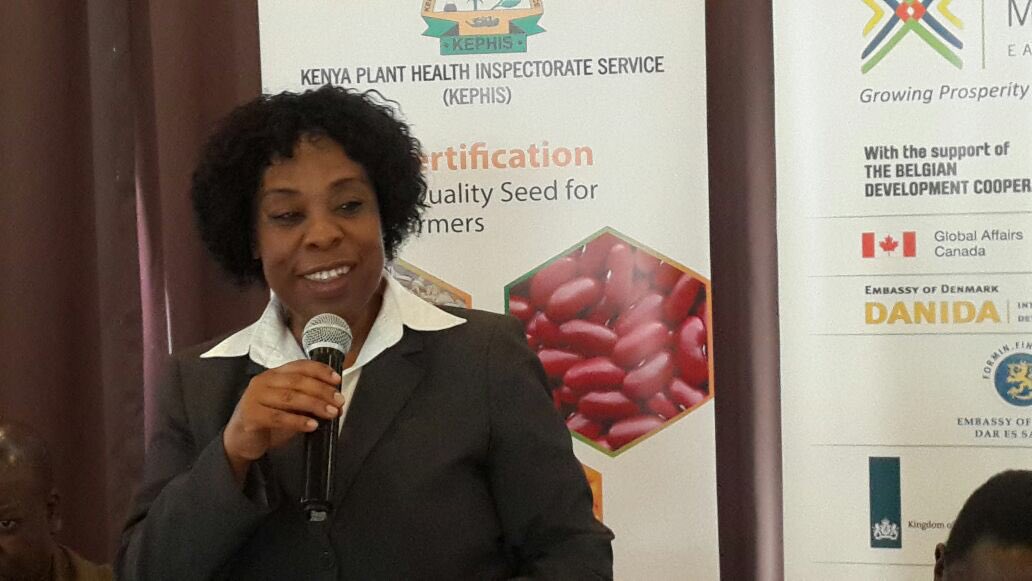Kenya Plant Health Inspectorate Service (KEPHIS) has urged farmers in dry Kitui County to plant certified drought seed varieties for better yields.
KEPHIS Managing Director Dr Esther Kimani said by using seeds specifically bred for Kitui ecological zone, the farmers could realize increased yields despite erratic rainfall patterns in the region.
By Fred Azelwa.
“This is a demonstration to Kitui farmers that it is possible for them to increase their crop production and become food secure despite the county’s aridity,” she said.
Kimani said KEPHIS had, in conjunction with agriculture-biased State agencies, developed seed varieties for dry Kitui including maize, sorghum, millet, green grams, beans, peas, paw paws, mangoes and vegetables among others.
“We are keen to ensure that Kitui farmers get quality certified seeds that can do well under minimal rainfall as part of the government’s efforts to make the country food secure and minimize food imports,” she added.
The MD further noted that KEPHIS had introduced a short code service to enable farmers determine the authenticity of seeds in the market.
“The certified seed packages bear unique codes which farmers can scan or SMS to KEPHIS for verification thereby locking out fake seeds which subject farmers to losses,” revealed the official.
Kimani said that farmers should buy seeds from companies that are registered with KEPHIS as either seed merchants or sellers.
“To verify its authenticity, one should ensure that the packet bears a KEPHIS sticker label that one should scratch and send the number underneath through SMS to 1393, after which, one will establish the seed variety, the producer and the lot number,” stated Kimani.
The MD added that once a farmer has purchased seeds, they should not throw away the receipt and packaging material for if planted seed fails to germinate, one should make a report to KEPHIS, upon which a follow up will be done using the evidence.
